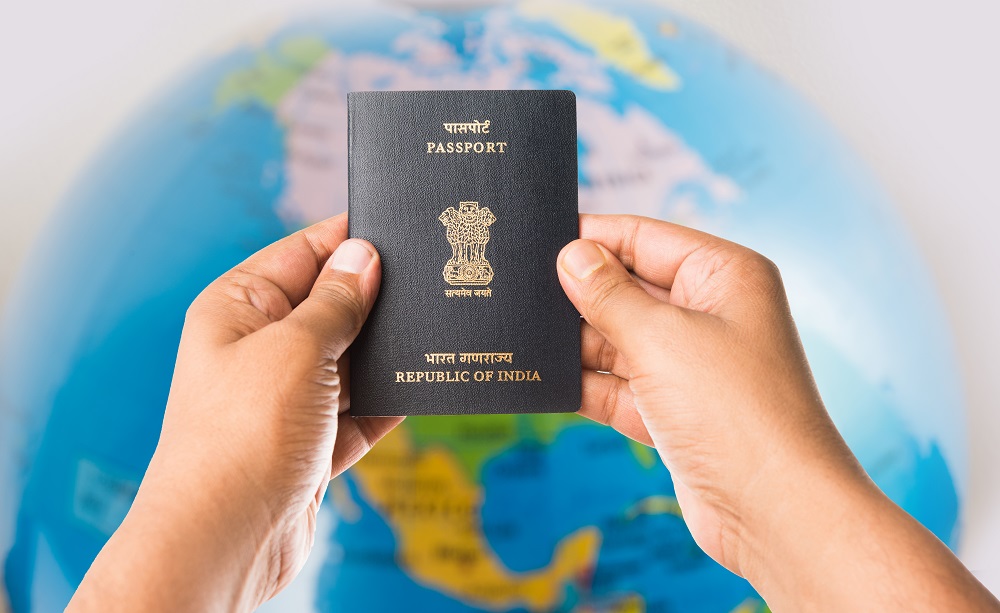India recently unveiled new chip enabled e-passports under Passport Seva Programme 2.0. These passports feature tamper-proof RFID chips with antennae inside their covers that store biometric and personal information of their holders.
This upgrade enhances travel convenience and security while speeding up immigration clearance times. Furthermore, e-passports manufactured domestically at India Security Press ensure tight data security – supporting Make in India efforts by supporting data privacy regulations.

Enhanced security
New e-passports feature a digital chip which securely stores traveler’s personal details such as photo, fingerprints and personal data. Furthermore, it contains biometrics, digital signatures and advanced security protocols to safeguard stored information integrity.
Physical and digital authentication processes ensure double-layer protection from tampering or forgery; at e-gates, fingerprint and facial scans are instantly verified against an e-passport’s chip for instantaneous verification; advanced authentication protocols ensure data security thereby decreasing identity theft risks and other crimes.
Travelers seeking an e-passport may apply online or schedule an appointment at their local Passport Seva Kendra or Post Office through the Passport Seva Portal for biometric enrollment. India Security Press in Nashik manufactures domestically produced passports which ensure rigorous data security measures as well as reinforce national control over passport production and distribution. This digital transformation supports India’s international growth strategy through increased global recognition and improved immigration efficiency.
Seamless global travel
The e-passport’s tamper-proof electronic chip safely stores biometric information, photos and personal details of travellers. Furthermore, its compatibility with global watch lists speeds up border control procedures while decreasing wait times at border crossings.
This technology also facilitates contactless identity verification at electronic gates, making the passport of tomorrow faster and more efficient. This exciting step toward seamless travel puts Indian travellers on par with citizens from advanced nations who already use biometric passports.
Although current passport holders are not required to switch over, anyone applying for or renewing their passport at a Passport Seva office in a city equipped to issue the e-passport will receive one as part of their application process. Nationwide availability is anticipated by mid-2025 and can be identified by its gold insignia on the front cover – currently it’s being piloted in Chennai, Hyderabad, Bhubaneswar Surat Nagpur Goa Jammu Shimla Raipur as pilot projects.
Faster immigration processing
E-passports represent an essential step forward for India’s digital transformation, offering enhanced security and seamless global travel for citizens. Equipped with biometric chips embedded into traditional passport booklets, these modern documents are virtually unforgeable – greatly decreasing identity theft risk.
Data stored on the chip is in both digital and printed forms, enabling fast verification at automated e-gates in airports worldwide. E-passports also adhere to international standards established by the International Civil Aviation Organisation (ICAO), providing interoperability with global systems that streamline immigration processing.
On April 1, 2024 as part of Passport Seva Programme Version 2.0, pilot e-passports were made available through Regional Passport Offices located in Chennai, Jaipur, Hyderabad, Nagpur Raipur Shimla Goa Amritsar for eligible applicants to collect. While applicants will continue their traditional application procedure they will also have their biometrics registered at an appropriate Passport Seva Kendra location for enrollment purposes.
Reduced risk of identity theft
e-passports contain RFID chips and antennae which store personal data both printed out as well as encrypted digitally, protecting it against hacking attempts by only allowing authorized systems to read it. Furthermore, data are digitally signed and verified by immigration authorities around the world to further strengthen security and reduce identity theft risks.
Chip-enabled passports feature tamper-evident design features to deter fraud by making any attempt at altering information clear to the owner and to any authorities investigating potential cases of misconduct. Furthermore, an encryption structure based on Public Key Infrastructure protects stored data integrity and verifies its source at e-gates.
This nationwide rollout of high-tech chip-based electronic passports follows on from a pilot initiative launched under Passport Seva Programme (PSP) Version 2.0 in April 2024. These compliant passports will improve travel efficiency, reduce border delays and bolster national security by strengthening document authenticity – easily identifiable by their golden insignia on their cover.